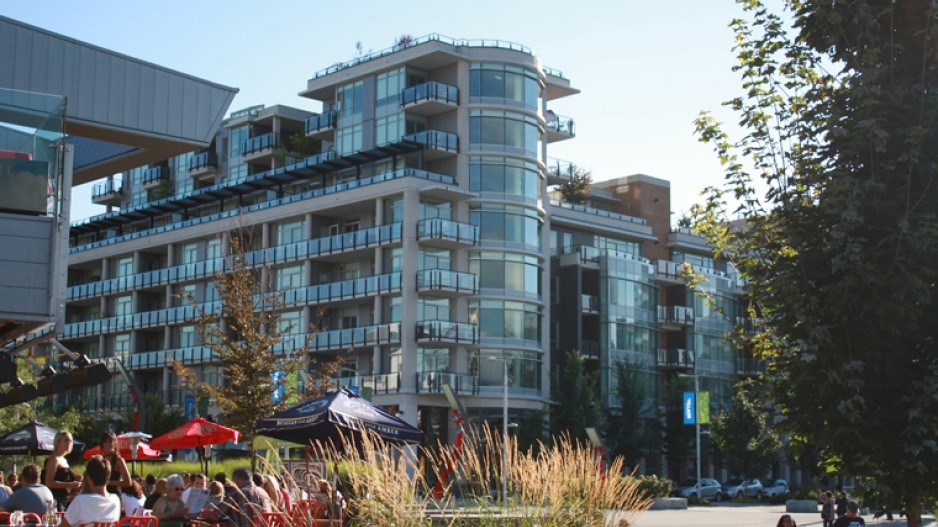The total cost to taxpayers of the city's involvement at the Olympic Village is about $150 million even though mayor Gregor Robertson is claiming that the city has paid off all debts and is running a $70 million surplus on the project.
Robertson announced April 28 that the Aquilini Group has scooped up the final 67 condominiums at the False Creek development for $91 million.
He said that the transaction allows the City of Vancouver to pay down the remainder of what started out as a $630 million debt when the city took over the project from Fortress Credit Corp. in 2009.
"It's great news for Vancouver taxpayers that we've paid off the Olympic Village debt and recovered an additional $70 million to go towards community amenities and public infrastructure," Robertson said.
"We are now officially done with our involvement in the project."
What Robertson did not mention, however, was a $170 million shortfall in money that Millennium Development owed the city to buy the property.
Millennium agreed to pay the city $200 million for the property but only ever paid a $30 million down payment.
Add in the $70 million that the city has realized since taking over the project and that leaves a $100 million cost to taxpayers.
"Another thing that the city is not talking about is the 262 social housing units," said real estate consultant and developer Michael Geller. "That was supposed to cost $60 million but ended up costing $110 million."
So there is another $50 million cost to taxpayers.
Geller added that even though he has been a critic of the way the city has handled the project he is happy that proceeds from the development were higher than expected.
Now, here's an accounting of how the city determined that it generated a $70 million surplus.
When the 2008 financial crisis forced Millennium to put itself into receivership in 2009, the city assumed $630 million in debt. It also had about $60 million in additional debt that it owed to itself so the total city debt on the project started out at about $690 million, explained city manager Penny Ballem.
The city then generated about $770 in proceeds from the project. That money came in the form of about $200 million in presales, $411 million in condominium and commercial property sales, about $68 million in proceeds from other Millennium Development properties that were sold as part of the receivership process and $91 million from the Aquilinis.
Factor in miscellaneous expenses and that leaves the city with the $70 million surplus.
Robertson told media April 28 that other developers were given a chance to bid on the remaining Olympic Village units and that the Aquilinis' purchase of the homes would not result in favouritism at city hall on any of their other real estate projects.
The Aquilinis have been interested in buying units at the Olympic Village for years.
Francesco Aquilini told Business In Vancouver in 2011 he was interested in buying all the remaining units at the former Olympic Athlete's Village, which numbered about 450 at the time.
He said the city's asking price was "a little too high" but he was confident he could sell the units to buyers from China.
The Aquilini Group sent a statement to BIV saying that "we have a long term investment horizon. Some condominium units will be sold, while others will be retained for rent until sold. We see long term appreciation in these units."




